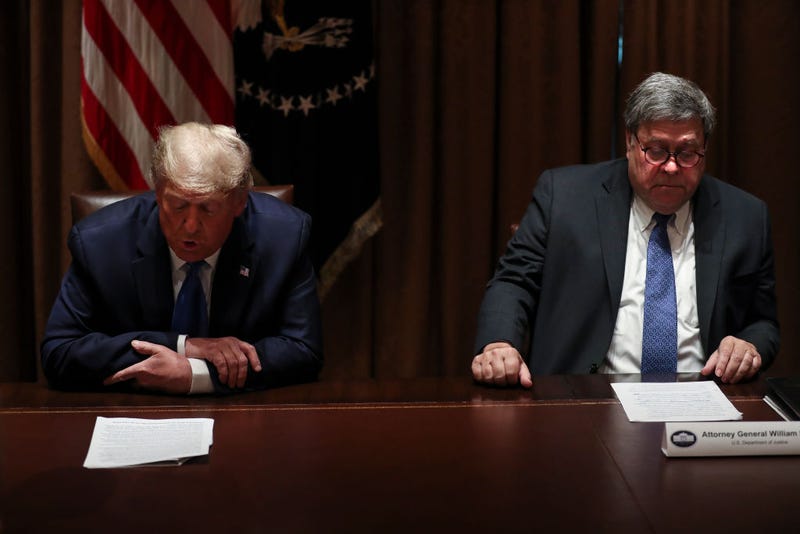
During the second hearing for the select committee investigating the deadly Jan. 6 Capitol riots, former U.S Attorney General William Barr said he thought former President Donald Trump was “detached from reality.”
“I was somewhat demoralized,” he said, recounting the moment when Trump gave him a “report” prepared by Allied Security Operations Group regarding claims of fraud connected to Dominion voting machines. He realized in that moment that, if Trump believed the report, he must be losing touch with reality.
“To be frank, it looked very amateurish to me,” Barr said in a testimony. He said there were no qualifications included for those who compiled the report and that statements in it were very conclusionary, though no supporting information was included to back up the claims.
Even before he met with Trump to look over the report, Barr was skeptical about the former president’s claims of voter fraud. These claims appear to have played a central role in motivating rioters to attack the Capitol on Jan. 6, as video shows many rioters came with Trump gear and he was giving a “Stop the Steal” speech nearby as they breached the Capitol grounds.
“My opinion then, and my opinion now, is that the election wasn’t stolen by fraud,” said Barr. “I haven’t seen anything since the election that changes my mind on that.”
When Trump first began talking about the allegations of voter fraud, Barr looked into them. He said the claims seemed “completely bogus, and silly, and based on misinformation.”
Research into the claims confirmed his suspicion. For example, one claim Trump made regarding vote “dumps” in Detroit, Mich., was easily debunked. Barr said he explained to Trump that votes from the city’s hundreds of precincts are counted in a central location rather than at each individual precinct. Therefore, bringing boxes of ballots to a specific location is a typical part of the vote-counting process there.
Barr also noted that Trump did better in Detroit in 2020 than he had in 2016, when he won the presidential election through an electoral college vote. However, Trump still publicly used Detroit as an example of voter fraud after Barr explained the city’s voting process, according to the select committee.
As new claims came up, such as the Dominion voting machine claims, Barr said it was like playing whack-a-mole to address them all. Still, no research came up with any evidence.
He called the Dominion claims in particular “idiotic” and a “great disservice to the country.”
Dominion has filed defamation suits against people and corporations that publicly supported fraud claims regarding its machines.
From mid-October to Nov. 23, 2020, Barr said he and Trump did not speak.
“It was getting awkward because, obviously, he had lost the election and I hadn’t said anything to him,” said Barr, who agreed to meet Trump in the Oval Office. There, Trump talked about voter fraud “for quite a while, as he’s prone to do,” according to Barr.
At the meeting, he clarified that the Department of Justice can not take sides in elections. Barr said that, as he left the meeting he asked Jared Kushner – Trump’s son-in-law who served as Director of the Office of American Innovation – and Chief of Staff Mark Meadows when Trump would give up the claims.
Meadows said he thought Trump was getting more realistic and Kushner said “we’re working on it,” according to Barr.
Overall, Barr said he thought Trump never had an interest in facts related to the fraud claims.
“I didn’t want to be a part of it,” he said.
Trump continues to claim that voter fraud cost him the election.
“Last week, on June 1, a three-judge panel of the Georgia Court of Appeals heard oral arguments in a vital case involving the public’s right to know the truth about the makeup of 148,000 absentee ballots, many of which were harvested and dumped into drop boxes in the dark of night in the period leading up to the November 3, 2020 election in Fulton County, Georgia,” he said in a statement posted to his website this month.


